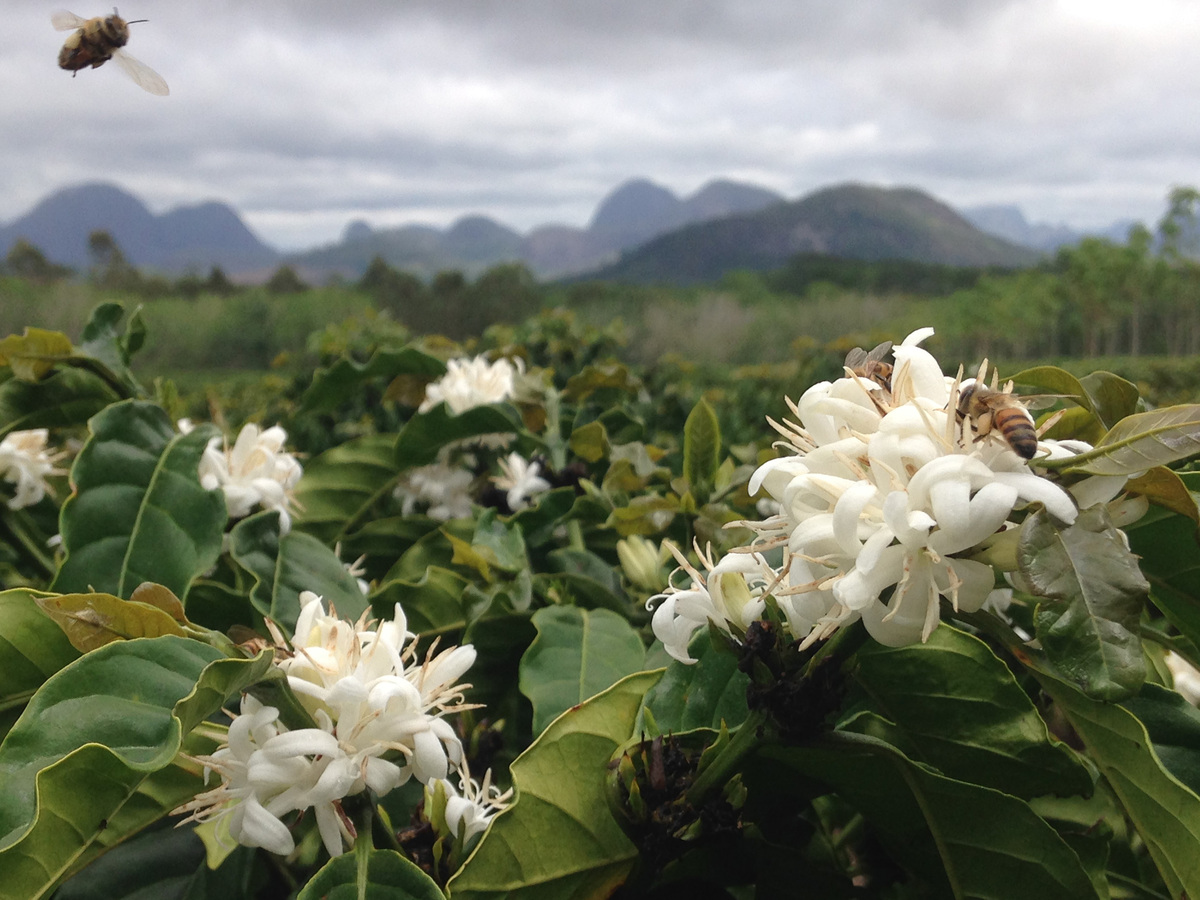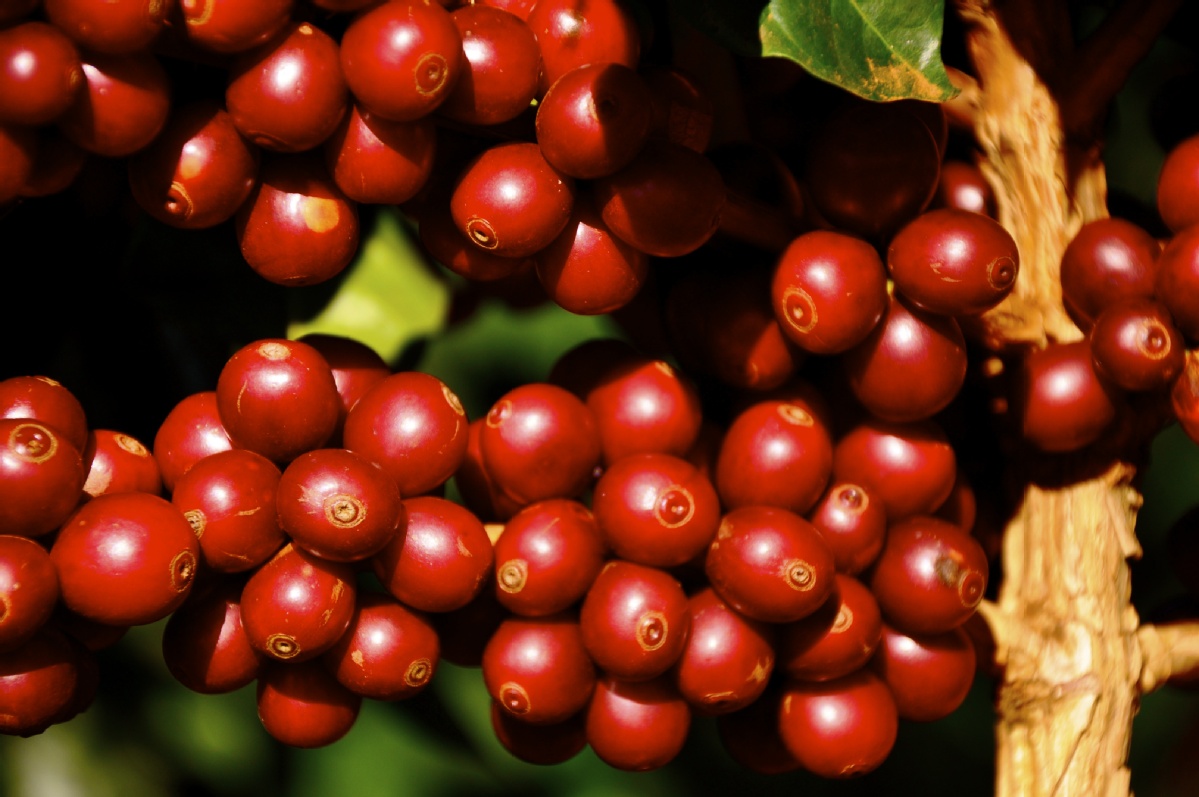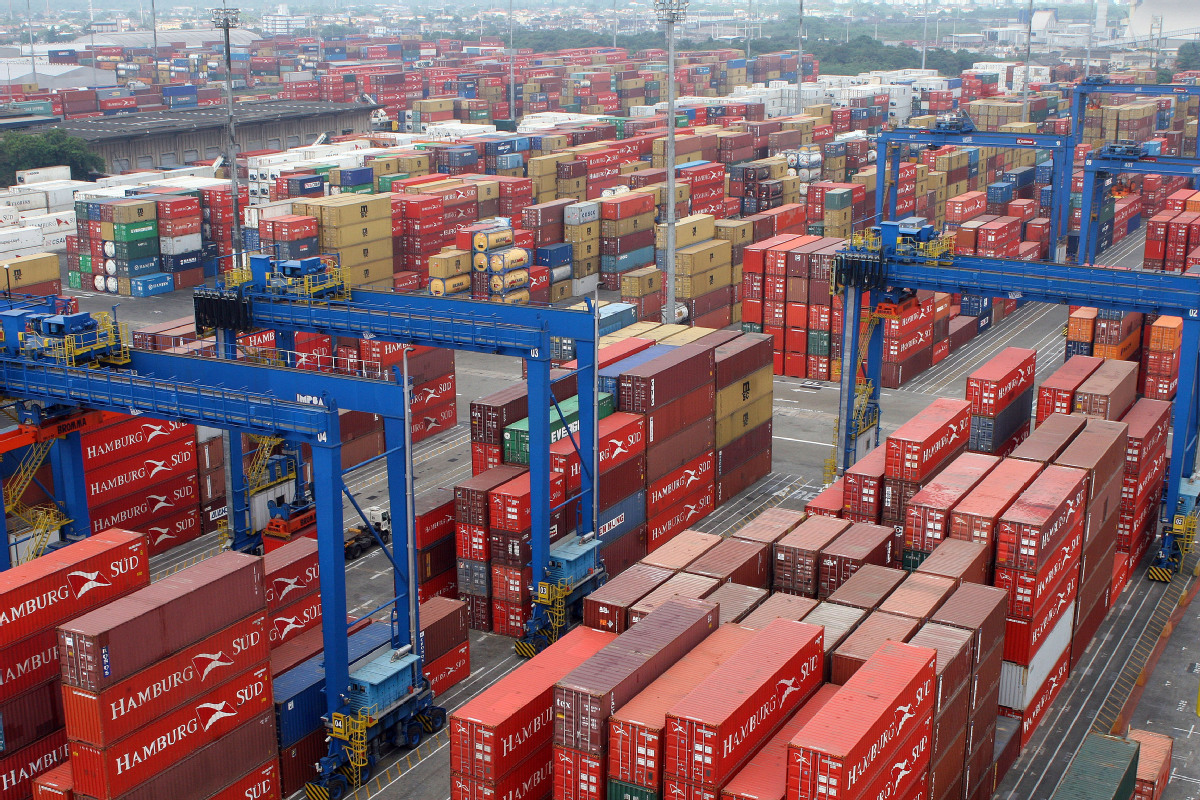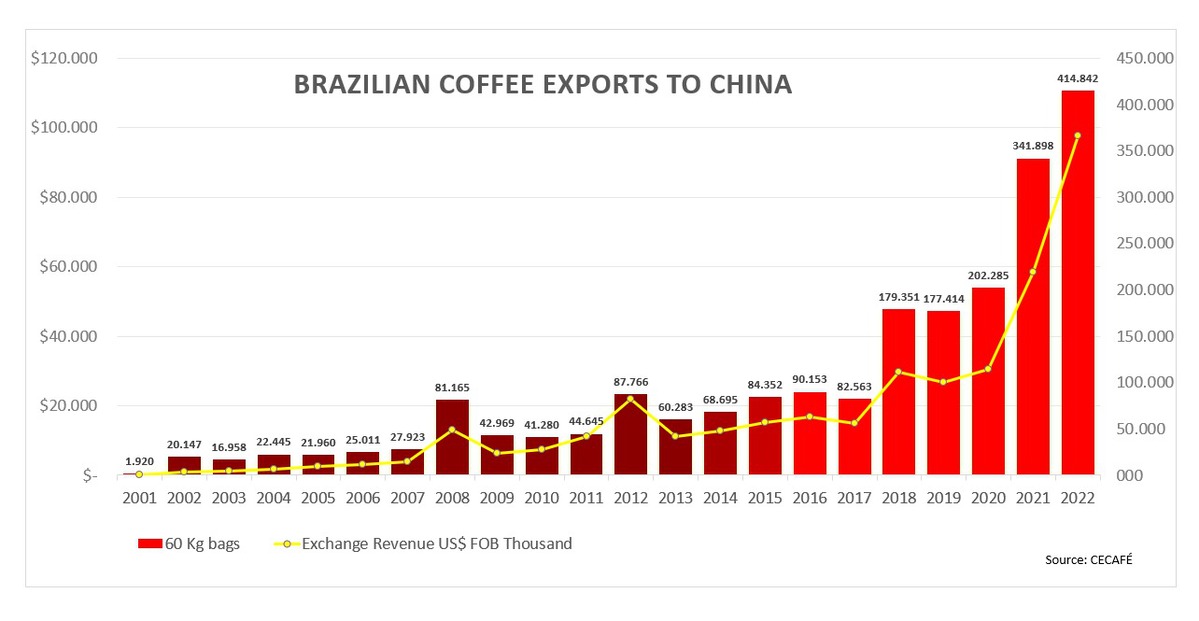
Café Fazenda Venturim- Environmental sustainability bees are allies in the pollination of coffee flowers. Credit: Venturim Farm
Brazil is the leading global coffee grower and exporter to the most diverse and demanding consumer markets. Brazilian coffee growing respects environmental, social, and governance criteria with diversity, providing a variety of qualities and flavors.
Brazilian coffee equals income, dignity, and well-being for farmers in all 34 growing regions. Coffee growing creates a positive impact on the communities around it, improving development, life expectancy, and education. An analysis conducted by Brazilian Coffee Exporters Council (Cecafé) in the main producing state, Minas Gerais, is proof of that. It shows that cities with a larger coffee growing area have higher scores in the Municipal Human Development Index (IDH-M).
Cecafé has started initiatives having in mind quality of life for coffee farmers. A few examples are the "Criança do café na escola" project (Coffee kids in school), with investments of BRL 9 million in 137 computer laboratories, and donation of 1,370 computers; the "Produtor Informado" project (Informed Farmer), which trained approximately 7,000 farmers in good agricultural practices and digital inclusion with the support of 15 institutions; and the "Café Seguro" project (Safe Coffee), which works on environmental training, focusing specifically on maximum residue limits.

Cooxupé- Mature coffee beans in a coffee plantation in Brazil. Credit Cooxupé Cooperative.
The Council, in partnership with the Global Coffee Platform (GCP) and the National Pact Institute for the Eradication of Slave Labor (InPACTO) also developed social initiatives aimed at improving living and working conditions in coffee communities, with actions to raise awareness on decent work conditions in compliance with Brazil's rural labor legislation - one of the most demanding legislations in the world.
Brazilian coffees also play an important part in mitigating global warming and are a reference for regenerative agriculture. A recent study promoted by Cecafé, under the scientific supervision of Prof. Carlos Cerri, from the Luiz de Queiroz College of Agriculture of the University of São Paulo (USP), and the Institute of Forest and Agricultural Management and Certification (Imaflora), assessed the impact of the transition from traditional coffee farming practices to those that add more organic material to the soil and keep it under vegetal cover.
The result highlights the magnitude of Brazilian coffee environmental service, as it shows a negative carbon balance of around 10.5 tons of CO2 and equivalents per hectare of the product. In other words, the activity is carbon negative, collaborating with the reduction of greenhouse gases (GHG) in the atmosphere.

Santos brasil- Port of Santos, the largest in Latin America, exports more than 80% of the coffees in Brazil. Credit Santos Brasil.
Brazilian coffees preserve natural resources and focus on family succession, gender equality, increasing income, productivity and quality, besides also being in compliance with applicable Labor and Environmental Laws.
Thus, Brazilian coffee growing has become a global reference and a success story in terms of sustainability, as it evolves based on science and with the support of an organized production chain, aimed at the export trade market.
The combination has resulted in undeniable gains in competitiveness, such as the significant increase in productivity, from 9 coffee bags (60kg) per hectare in the 1990s to approximately 30 coffee bags/ha today.
At the same time, Brazil is also strengthening its position as the main global coffee supplier, maintaining its shares with traditional partners and opening new markets with the diversity, quality, and respect for ESG criteria.
In 2022 alone, the country exported 39.4 million coffee bags to 122 countries, reaching a foreign exchange revenue of USD 9.2 billion. It is also important to point out that 85% of the revenue goes directly to the farmers.
In this context, China emerges as a potential and promising market for Brazilian coffees. In 2001, the beginning of the 21st century, shipments to China reached only 1,920 coffee bags, and were handled by just two exporting companies. With 35 exporters in 2022, shipments reached 414,842 coffee bags, a substantial growth of 21,506% in just over 20 years.

Brazilian Coffee Exports to China 2001-2022.
In terms of revenue the performance is even more significant, as China increased its investments in the product by 87,691% compared to the same period, with foreign exchange revenue reaching USD 97.6 million in 2022. Consequently, China went from 40th in the ranking of Brazil's top coffee partners in 2001 to 20th in 2022.
Aware of the potential and importance that China has been gaining in the global coffee market, Brazil started a number of promotional initiatives to contribute to coffee drinking in China.
In 2021, for example, Cecafé developed an action in partnership with the Brazilian Embassy in Beijing and Mellower Coffee allowing the coffee shop chain clients to taste Brazilian coffees and learn about the history of the of Brazilian coffee growing through videos available on a digital menu and on TV sets in the stores.
We are also part of a task force to evaluate the market potential and design strategies to export to China. Completed in 2020, a study indicated that there are already about 330 million coffee drinkers in China, mostly people from 20yo to 34yo, 60% of whom are women.
Aware of this and knowing the potential of the Chinese market, the Brazilian exporting sector will continue working to bring to coffee drinkers in China the entire variety of flavors and qualities of Brazilian coffees. It is our understanding that the prosperity of our bilateral relationship is essential for China to access one of the best coffees in the world, and for Brazilian coffee farmers to continue growing with excellence, social and environmental respect, and decent quality of life.
This is a two-way street, a win-win situation to both Brazilians and Chinese!
To learn more about Brazilian coffees and the work done by the export sector, access www.cecafe.com.br.
Cecafé is the Brazilian Coffee Exporters Council